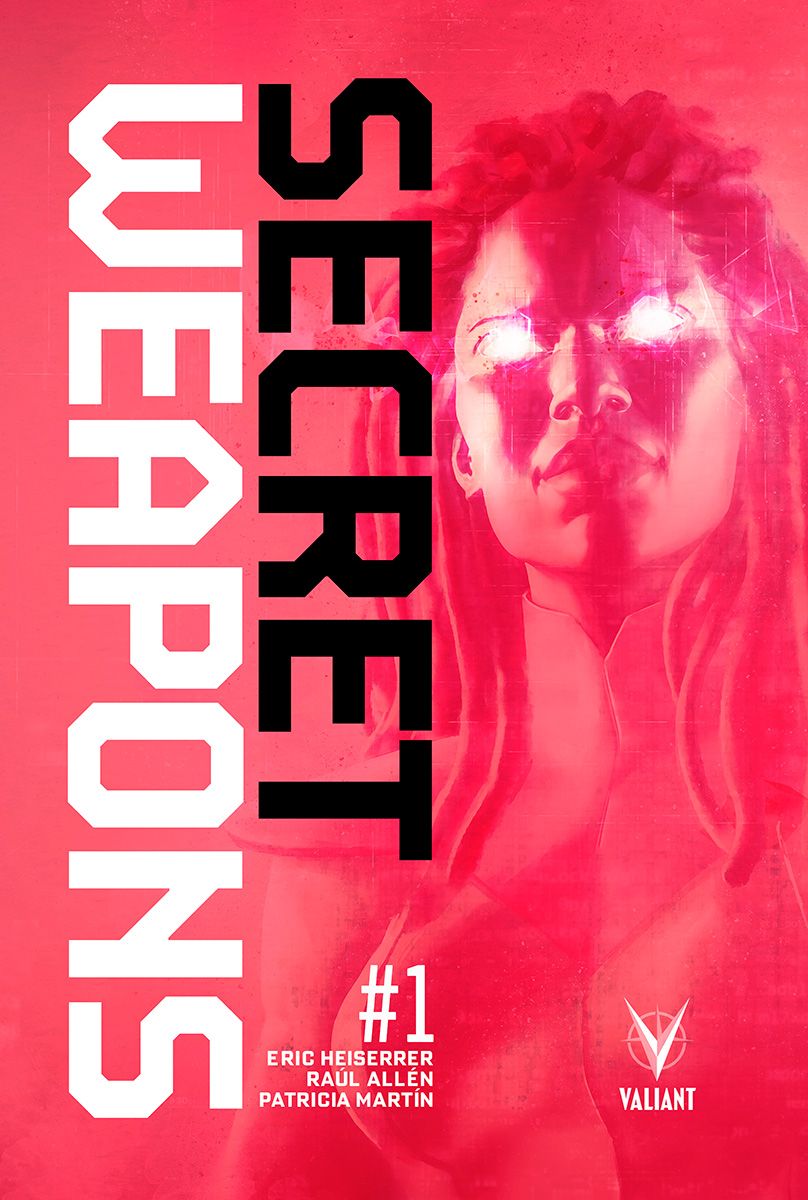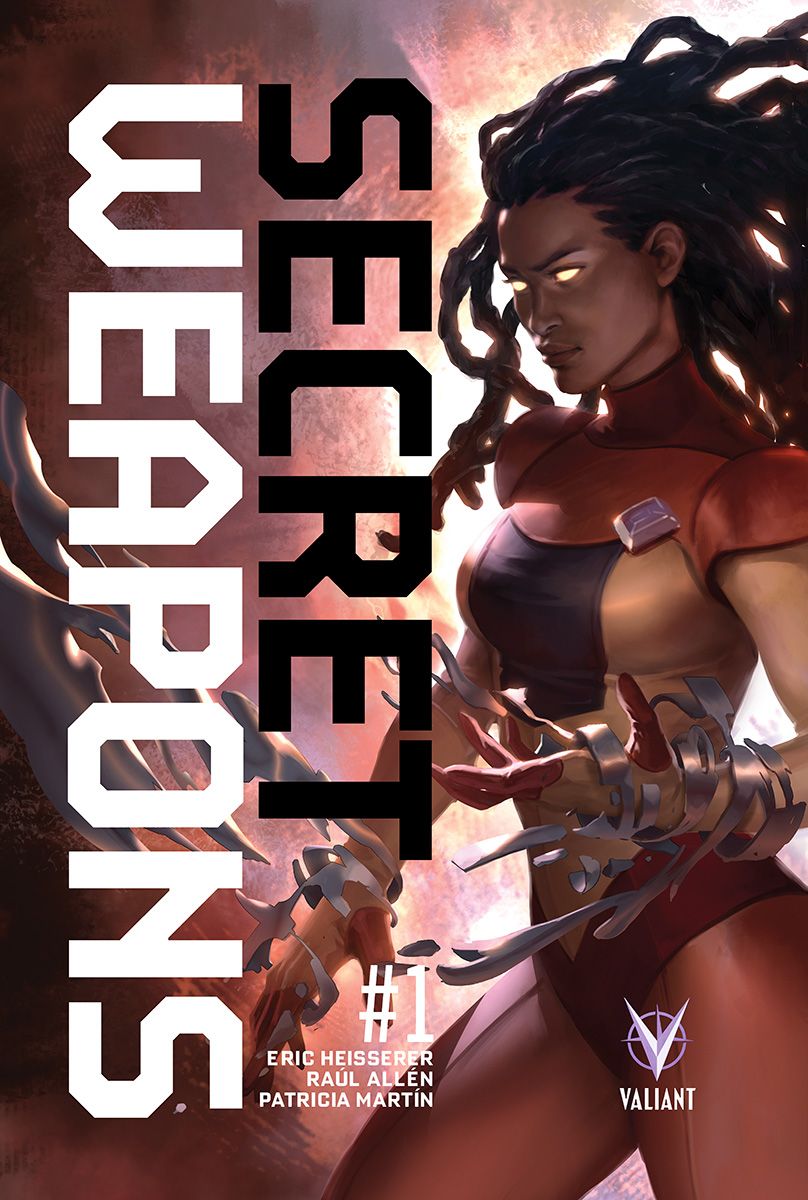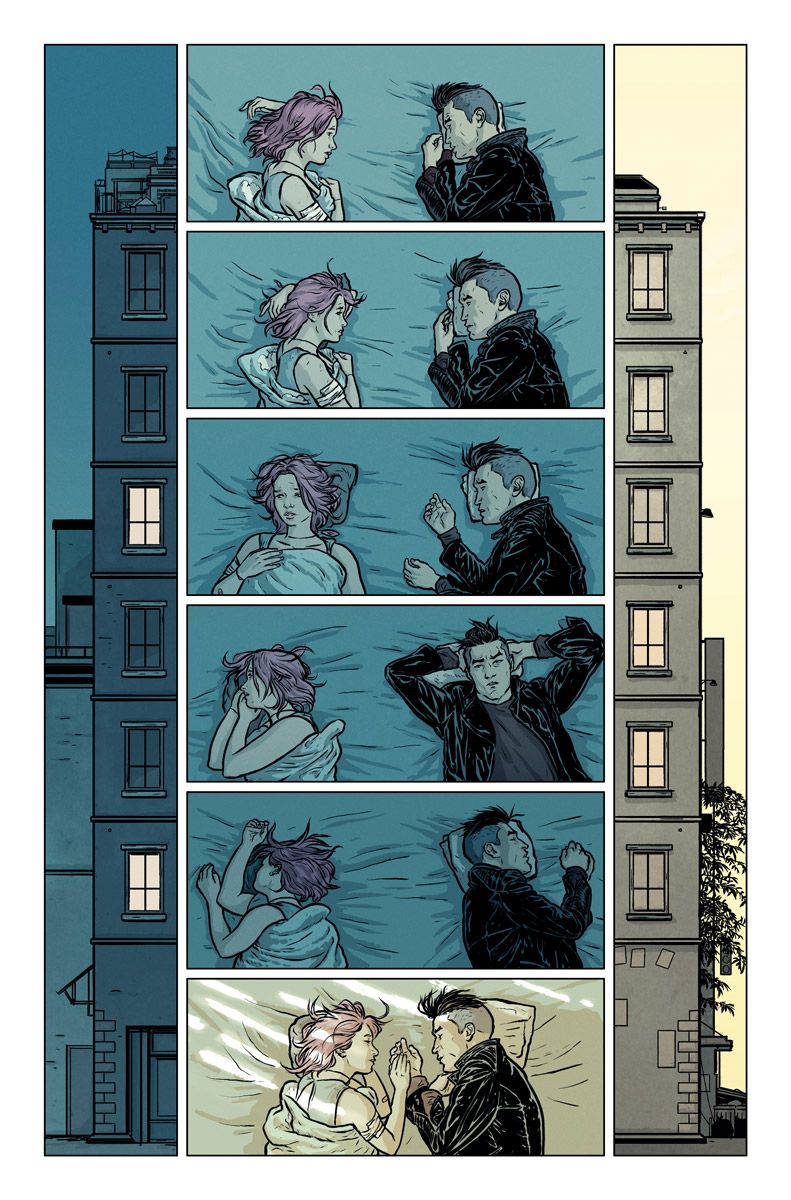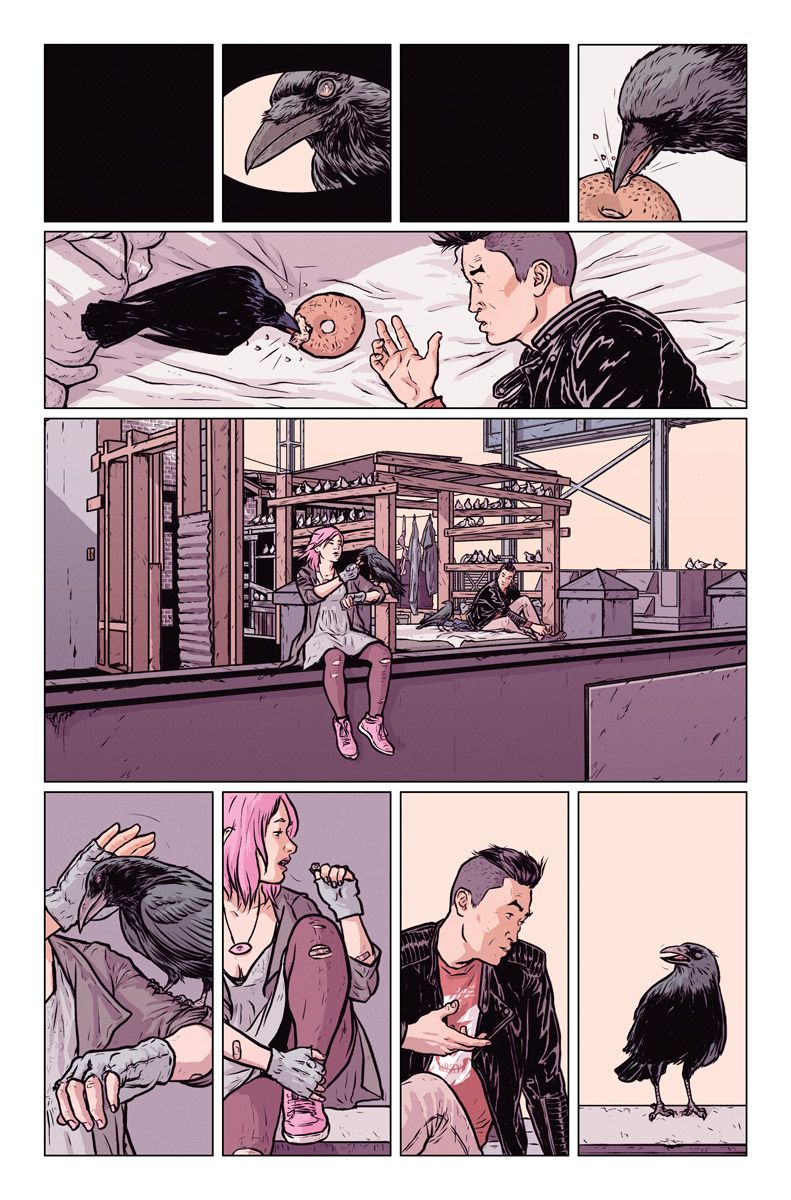The sci-fi drama Arrival was one of the most acclaimed feature films of 2016, earning widespread recognition among critics and audiences alike, including a Best Adapted Screenplay nomination at the Academy Awards for its writer, Eric Heisserer.
But if you're looking for Heisserer's next project, it won't be on the big screen -- it'll be in comic books, specifically Valiant Entertainment's upcoming Secret Weapons miniseries. Secret Weapons focuses on Amanda McKee, better known as Livewire from Harbinger. In the four-issue series, Livewire will gather a team of psiots with powers that Toyo Harada didn't deem useful to his goals -- like talking to birds or materializing random inanimate objects -- to take on the threat of Rex-O.
Secret Weapons is slated to start in June, illustrated by Wrath of the Eternal Warrior art team Raul Allen and Patricia Martin and released in the "Valiant Prestige" format similar to past miniseries The Valiant. But it's not Heisserer's first comic book work, as his past credits include Shaper and Lone Wolf 2100: Chase the Setting Sun, both at Dark Horse Comics. It's also not Heisserer's first time in the Valiant Universe, as the project extended from his work on the screenplays for the Harbinger and Bloodshot films at Sony Pictures.
CBR spoke in-depth with Heisserer about Secret Weapons, working with Allen and Martin, why he keeps coming back to comics and how he sees the Valiant Universe as distinct from those other two big superhero shared universes.
CBR: Eric, you're rather deep into the Valiant Universe, between the screenplays and writing Secret Weapons. What's your background with these characters? Were you a fan before you came into this world, or new to it when you started on the screenplays?
Eric Heisserer: I was familiar with titles, I read a few Archer & Armstrong back in the '90s. But I'd been away from it. I wasn't aware of Harbinger, and as a crash course before my meeting to talk about adapting it, I went and bought a bunch of books for that, and got totally sucked into it. I thought, "Wow, this is different than a Marvel or DC title."
That was how I got hooked on the other comics. That was my gateway drug, so to speak.
For you, what makes Valiant different, as you said, than Marvel or DC? What do you like about the Valiant Universe that's unique from other superhero worlds?
I guess what I like about the Valiant Universe is there's a wide diversity of characters and worlds, and it's something that's obviously steeped in history or social politics. It feels more connected to my world than most other books. A little more grounded, a little more resonant. Everything seems properly motivated to me -- I never get lost in terms of what a character wants, or why they're doing what they're doing.
This isn't your first comics work, as you've written a few before in the last few years. How did you initially arrive at the medium, and how did you come into writing this series?
I did a couple of one-shots for BOOM! [Studios], some Zombie Tales, as a nice intro into the world. I had written a space opera feature film screenplay that was prohibitively expensive, and as soon as Star Wars came back into vogue, I realized, "OK, this is never going to happen." So I approached Dark Horse to see if maybe I could turn it into a miniseries, and scratch my itch that way, and they said yes. I wrote Shaper a couple of years ago for Dark Horse as a five-issue, that I was trying to make an eight-issue, and couldn't convince them. [Laughs] So I had to truncate that story a little bit.
That relationship worked well enough that they allowed me to write Love Wolf 2100, a reboot of that idea, and I did that for four issues. Then I was steeped in Valiant at the time, and got so in love with Livewire, and wound up with a long laundry list of things I'd like to see her do -- not just as a character, but to play around with her powers. I convinced them to give me a title.
Even though your schedule is full as a screenwriter, you've kept coming back to the comics medium with some regularity. What do you like about what comics, in particular, provide to you as a writer?
It's a streamlined process. I get to see a final product a lot faster, and the odds of seeing it are much higher than in film. That helps bolster my confidence a little bit -- your self-esteem can really hit rock bottom in the film world, simply because so many times you strike out. I've written close to 60 screenplays now, and five or six have made it. It's a low return there.
This helps to make sure that I'm getting ideas out there, I'm getting a sense of what works and what doesn't. Beyond that, though, it trains me to be a more visual storyteller. Even as a screenwriter, you can end up writing for the page -- you're writing to impress a reader, and you're not thinking about the final product. You can't do that for comics. You've got to make sure your artist is understand what you're doing.
Speaking of artists, here's your working with Raul Allen. How has that collaboration been?
He's a true partner on this, absolutely. One of the most amazing things about Raul is, he is not afraid of a 12-panel page. He knows how to cram in so many pieces of visual imagery and make it work. But god forbid I ask for 12 panels. [Laughs] I've got to let him figure that out. So it's really about giving him a sense of what I'm after, and my inspirations from the content, and see if he can be similarly inspired, and then come back with something that's his version of that.
Or quite often I'll say, in the script itself, "Hey, remember what you did in Wrath of the Eternal Warrior? I liked that a lot. Can we do that here?"
Just from the first few preview pages, the series looks to have a rather distinct tone -- the coloring also playing a huge role.
Definitely. All of it comes together really well, and has an iconic look. That was what I was after. When I talked about my touchstones for this, I said, "Let's create an urban fable." The way to tell it was inspired by my love for Neil Gaiman and Neverwhere. I said, "What if we can talk about the way people use powers in that kind of environment, and layer that into Valiant?"
You're focusing on Livewire as the main character. What you like about her? It's notable that most of the traditional high-profile heroes at Valiant -- X-O Manowar, Bloodshot -- are male characters. But the company has had such a big hit with Faith, and there's been multiple Dr. Mirage series, and now, Livewire looks to be on that same path. What is it about the character that connected to you?
I'd seen so many examples, in comics in particular, of a character with a mentor who teaches them values and discipline and trains them well, and then that mentor goes dark and takes the wrong path and becomes corrupted. Every time that's happened in other comics stories, the trainee ends up feeling broken, and really disillusioned, goes dark as well, or just falls off and becomes alcoholic; or whatever the case is.
And Amanda didn't do any of those things. She stuck to her moral center, she still knows what's wrong and right, and fights for what she believes in, despite the fact that it's at odds with Harada. I'm grateful for that. Especially right now -- I need a character like that in my life. Someone who has a lot of empathy.
The premise of "Secret Weapons" -- characters who have powers that would seem to be useless in a superhero world -- seems like one of those ideas that it's surprising it hasn't been seen more often. How did that develop, and what kind of fun did you have with the concept?
It developed kind of naturally from my curiosity about Harada's procedure to active the psiots, and the fact that you don't know what you're going to get beforehand. He's probably spending a quarter of a million dollars per surgery, and then to get someone that doesn't have a power that's easily recognizable as something that's useful, then where do they go? What does he do with them?
Beyond that, when I was a teenager, I was really addicted to "Champions," the roleplaying game. I didn't get very many opportunities to play that, but I loved creative characters. I just generated a whole bunch of characters. The way that you have to build those characters in order to make some of them very powerful, you also have to give them a bunch of disadvantages. I wound up with a character like Owen, who I made basically 30 years ago, who can materialize inanimate objects. That seems like an awesome power, except he can't control what he gets. I love that. I've been wanting to try this story for a long while, really.
With "Secret Weapons," do you see it thematically connected to any of your past work, or wholly new territory for you?
I feel it's new, and that's what I like about it. I made a promise myself to try a new project or a new genre, maybe even a new medium, once a year, because it just hones the craft some more; it works new muscles.
In a broader sense, what has your life been like over the past year, given the success of "Arrival"? You've had other films, but nothing that hit with people that way. What has that journey like, with all the awards and recognition?
I've had a bit of a rude awakening there, because before the accolades for Arrival came rolling in, I was often in a bake-off for projects I was excited about; meaning it was me and at least eight other writers that were all competing for a project. I thought, "OK, finally, post-Arrival, I'm not going to deal with this kind of competition." Just recently I went in for something I was very passionate about, and they said, "Well, you're up against eight other Oscar-nominated writers." I just went into hard mode! That's all.
Given your day job, do you see yourself continuing to come back to comics when you can?
Definitely. In fact, specifically Valiant. I'd like to be in the Valiant family. I could write Secret Weapons for the next five years if they let me.
Secret Weapons #1 is scheduled for release on June 28 from Valiant Entertainment.






